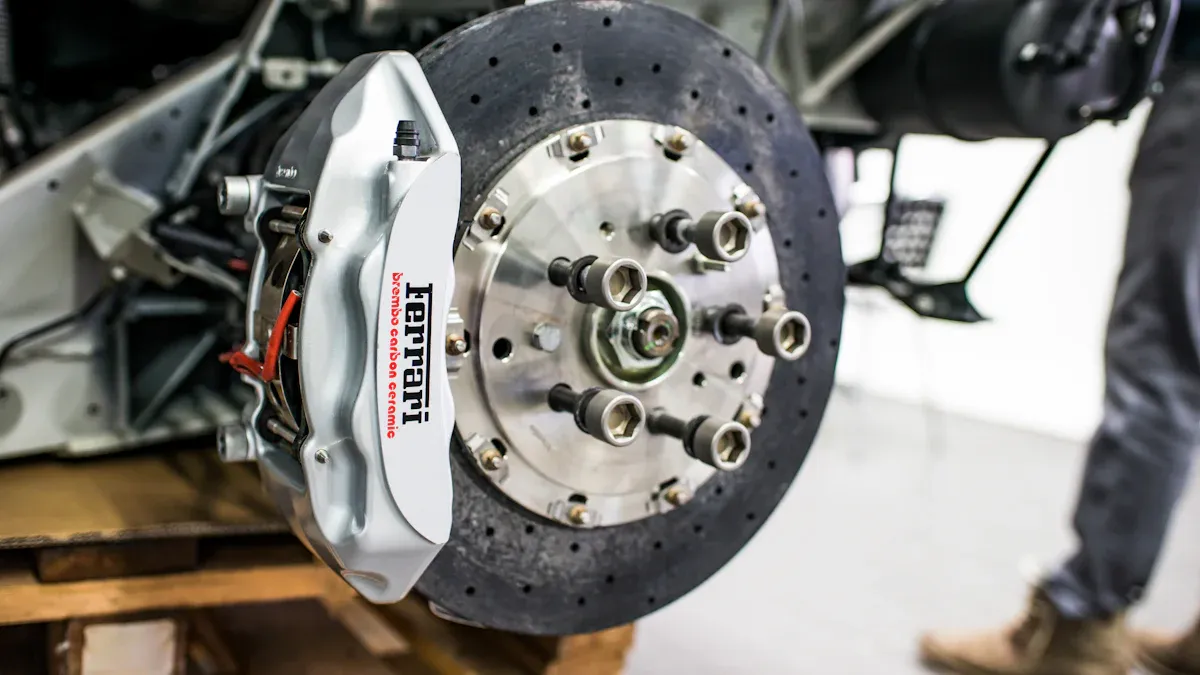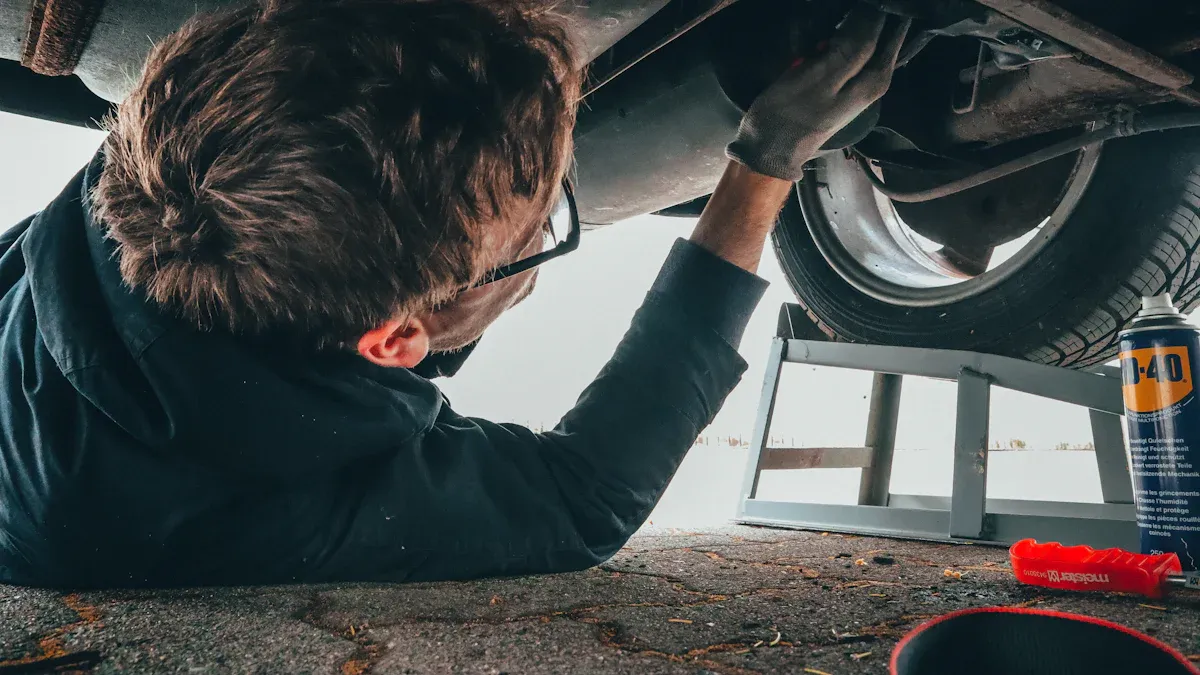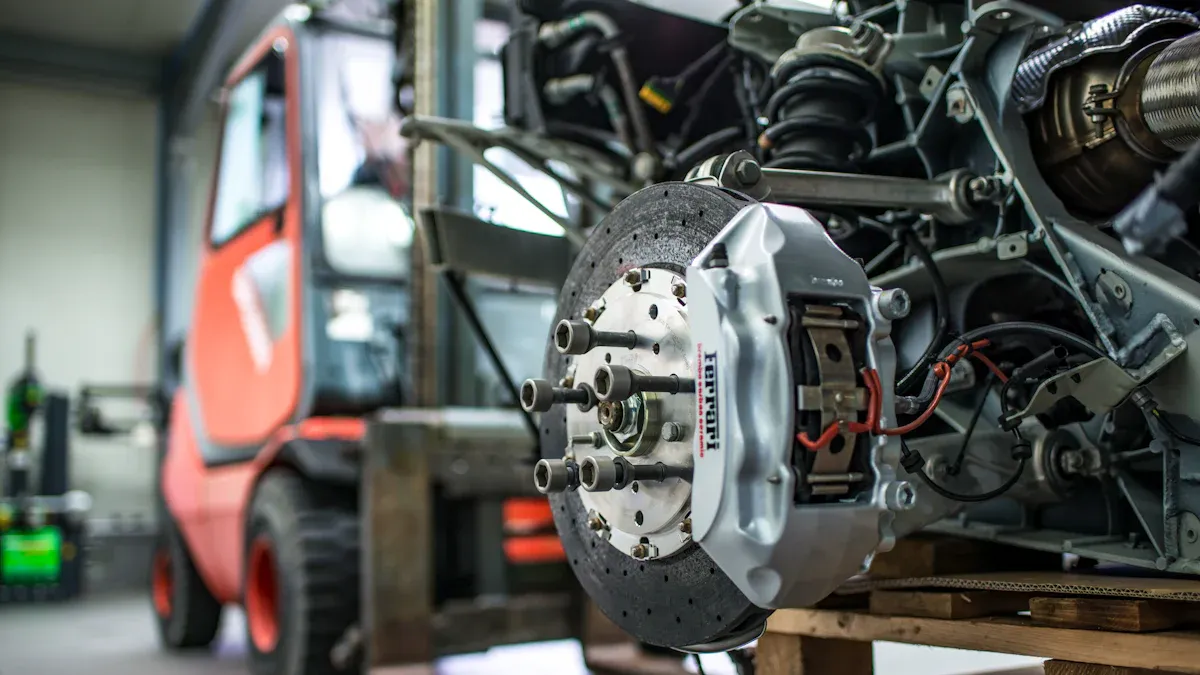
Replacing a clutch master cylinder can cost anywhere from $350 to $500, but some vehicles might push that number up to $1200. You’ll notice the price depends on factors like your car’s make and model, labor rates, and the quality of the parts. Ignoring a failing clutch master cylinder can lead to bigger problems, so it’s worth fixing it sooner rather than later.
Key Takeaways
- Changing a clutch master cylinder costs $350 to $500. For some cars, it can go up to $1200. Fixing problems early can save money on bigger repairs later.
- The price depends on your car’s type, labor costs, and part quality. Compare prices at different shops and ask if the mechanic knows clutch systems well.
- Check your clutch fluid often and fix small problems quickly. Taking care of your clutch can stop expensive repairs in the future.
Factors Influencing the Cost of Replacing a Clutch Master Cylinder

Vehicle Make and Model
The type of car you drive plays a big role in how much you’ll pay to replace the clutch master cylinder. Luxury or high-performance vehicles often require specialized parts, which can be more expensive. For example, replacing the clutch master cylinder in a sports car might cost more than in a standard sedan. Older or rare models can also drive up the price since finding compatible parts may take extra effort. If you’re unsure about your vehicle’s specific needs, check your owner’s manual or ask a trusted mechanic.
Labor Costs and Shop Rates
Labor costs vary depending on where you live and the shop you choose. Mechanics in urban areas or high-cost regions tend to charge more per hour. On average, labor makes up a significant portion of the total cost. Replacing a clutch master cylinder isn’t the most time-consuming repair, but it still requires skill and precision. To save money, you can compare rates at different shops or look for promotions. Just make sure the mechanic is experienced with clutch systems.
Quality and Price of Replacement Parts
Not all replacement parts are created equal. You’ll find a range of options, from budget-friendly aftermarket parts to premium, original equipment manufacturer (OEM) parts. While aftermarket parts can save you money upfront, they might not last as long. OEM parts are pricier but often come with better warranties and reliability. Choosing the right part for your clutch master cylinder depends on your budget and how long you plan to keep your car.
Repair vs Replacement: What’s the Best Option?
When Repair is a Cost-Effective Solution
Sometimes, repairing your clutch master cylinder can save you money. If the issue is minor, like a leaky seal or a clogged valve, a skilled mechanic can fix it without replacing the entire unit. Repairs work best when the part is still in decent condition and hasn’t caused damage to other parts of the clutch system. You’ll also save time since repairs are usually quicker than full replacements. If your mechanic suggests a repair, ask about the expected lifespan of the fix. This way, you’ll know if it’s worth the investment.
Situations Where Replacement is Necessary
There are times when replacing the clutch master cylinder is your only option. If the part is severely worn out, cracked, or beyond repair, a replacement ensures your vehicle runs smoothly. Ignoring a failing master cylinder can lead to bigger problems, like damaging the clutch or transmission. Replacement is also the better choice if you plan to keep your car for a long time. A new part will last longer and give you peace of mind.
Comparing Costs: Repair vs Replacement
Repairs are usually cheaper upfront, but they might not last as long as a replacement. For example, fixing a leaky seal could cost less than $100, while replacing the entire clutch master cylinder might cost $350 or more. However, if the repaired part fails again, you’ll end up spending more in the long run. Replacements cost more initially but often come with warranties, making them a better long-term investment. Think about your budget and how long you plan to keep your car before deciding.
Understanding the Clutch Master Cylinder

What is a Clutch Master Cylinder?
The clutch master cylinder is a small but essential part of your car’s clutch system. It’s responsible for transferring the force from your foot on the clutch pedal to the clutch itself. When you press the pedal, the master cylinder uses hydraulic pressure to engage or disengage the clutch. Think of it as the middleman that ensures smooth gear changes. Without it, shifting gears would feel clunky or even impossible.
Why is it Important for Your Vehicle?
A properly working clutch master cylinder keeps your car running smoothly. It ensures that the clutch system operates efficiently, which is crucial for controlling your vehicle. If this part fails, you might struggle to change gears or even lose control over your car’s movement. For manual transmission vehicles, the clutch master cylinder plays a key role in maintaining drivability. Ignoring its importance can lead to costly repairs or unsafe driving conditions.
Signs Your Clutch Master Cylinder Needs Replacement
How do you know if your clutch master cylinder is failing? Here are some common signs to watch for:
- Soft or spongy clutch pedal: If the pedal feels different when you press it, the master cylinder might be leaking.
- Difficulty shifting gears: Trouble moving between gears could mean the hydraulic pressure isn’t working correctly.
- Fluid leaks: Check under your car for puddles of clutch fluid. A leak often points to a damaged master cylinder.
- Unusual noises: Squeaking or grinding sounds when using the clutch could signal a problem.
If you notice any of these symptoms, don’t wait. Addressing the issue early can save you from bigger headaches down the road.
Replacing a clutch master cylinder typically costs between $350 and $500, but some vehicles can push that up to $1200. Addressing the issue early saves you from bigger, costlier problems later.
Tip: Look for a mechanic with good reviews and certifications. Ask questions about their experience with clutch systems to ensure quality work.
To keep your clutch system in top shape:
- Check the fluid regularly.
- Schedule timely servicing.
- Address small issues before they grow.
Taking these steps can help you avoid expensive repairs and keep your car running smoothly.
FAQ
How long does it take to replace a clutch master cylinder?
It usually takes 2–4 hours. The exact time depends on your car’s design and the mechanic’s experience.
Can I drive with a failing clutch master cylinder?
Driving with a bad clutch master cylinder isn’t safe. You risk losing control of gear shifts, which can lead to accidents or further damage.
What’s the best way to find a reliable mechanic?
Check online reviews, ask for certifications, and talk to friends. A trustworthy mechanic will explain repairs clearly and offer fair pricing.
Tip: Always ask for a warranty on replacement parts. It ensures peace of mind and protects your investment.
Post time: Mar-28-2025

